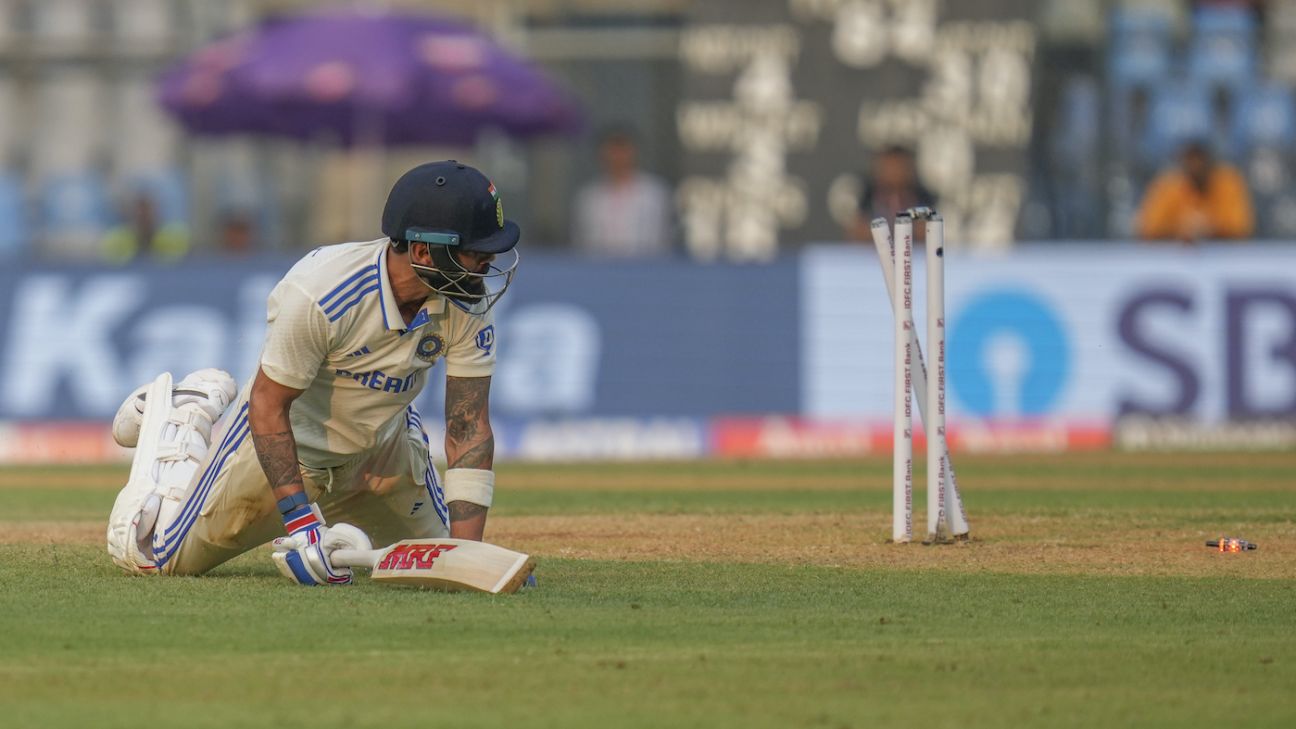 |
|
The first Test match between India and New Zealand at the Wankhede Stadium in Mumbai unfolded as a tale of two halves. India, after a strong start, found themselves in a desperate situation after a dramatic collapse on the first day's play. Despite a promising start, India's fortunes took a turn for the worse in the final minutes of the day, leaving them teetering on the brink of defeat.
India had initially dominated the proceedings, dismissing New Zealand for 235 runs and then building a solid foundation with a score of 78 for 1 in 17 overs. However, a catastrophic collapse in the last few overs, culminating in the loss of three wickets in seven balls, turned the tide of the match entirely. The swift dismissal of Shubman Gill, Yashasvi Jaiswal, and Virat Kohli, all within a span of a few minutes, sent shockwaves through the Indian camp. The team's composure, built on a solid start, evaporated quickly under the pressure of a sudden crisis.
The collapse was a stark reminder of the fickle nature of Test cricket, where momentum can shift dramatically in a short period. Ajaz Patel, the New Zealand bowler, was the architect of India's woes, taking two quick wickets in the final moments. This dramatic turnaround exposed the vulnerability of the Indian batting order, leaving them with a mountain to climb in the remaining sessions of the match. New Zealand, on the other hand, displayed incredible resilience and opportunistic bowling, turning the tide of the match in their favor. They seized the moment, capitalizing on India's faltering batting line-up and gaining a crucial psychological advantage in the contest.
The loss of wickets in quick succession left India reeling. The sudden shift in momentum, coupled with the looming threat of defeat, cast a shadow over the team's spirit. The first-day collapse exposed the team's fragility under pressure, a worrying sign for India, considering their ambitions of winning the series. The team's response to this setback will be crucial in determining the outcome of the match and, consequently, the fate of the series. The Indian players will need to regroup, analyze their mistakes, and devise a strategy to salvage their chances of winning the match and preventing a whitewash. The challenge for India is not only to overcome the immediate crisis but also to regain their composure and confidence to fight back against a resilient New Zealand team.
Source: Seven balls at the Wankhede: India's post-Halloween horror story
